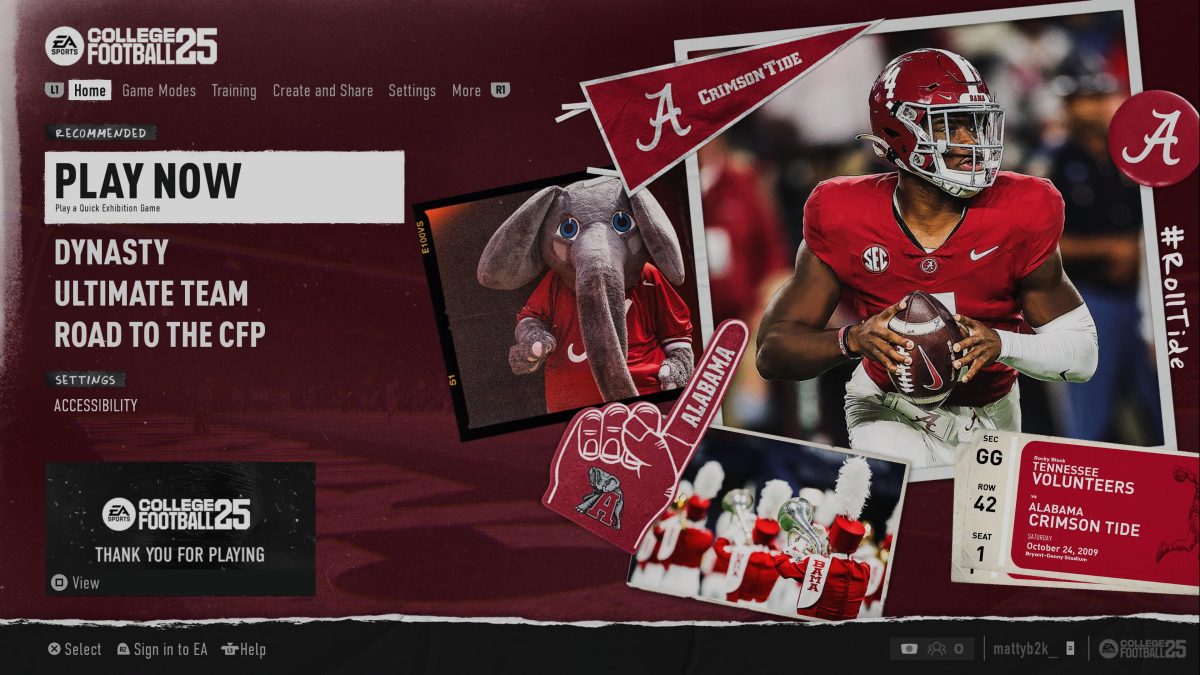The 14-year reign of the Bowl Championship Series will come to an end at the conclusion of the 2014 season.
The 12-year deal, approved by the BCS Presidential Oversight Committee last Tuesday, will be a four-team, seeded playoff. There will be a semifinal round matching the No. 1 and No. 4 ranked teams and the No. 2 and No. 3 ranked teams. The semifinal games will rotate between six bowl games each year, with the championship game going to the highest bidder.
So far, the Rose Bowl and the Champions Bowl, recently created by the SEC and Big 12, are two of the favorites along with the Orange, Sugar, Fiesta and Chik-Fil-A bowls. Each bowl game should host two semifinals games over the life of the deal.
A selection committee will rank playoff teams based on win-loss record, strength of schedule, head-to-head matchups and if a team wins its conference championship. People close to the situation believe the committee will follow the model set by the college basketball playoff system and have current athletic directors, former administrators and coaches serve on the committee.
Some details that have yet to be decided are who will serve on the selection committee, which bowl games will be involved in the rotation of six, the name of the event and the revenue-sharing formula.
With all of those questions surrounding the new deal, experts from around the country weighed in with their thoughts on the new system. Adam Rittenberg, ESPN.com’s Big Ten blogger
CW: What are your initial thoughts on the playoff system? AR: The BCS system helped the popularity of college football in some ways, but ultimately it was a very unpopular system. Fans wanted a change, and the presidents were able to do the right thing and respond with a playoff.
CW: What’s the biggest thing besides the selection committee that needs to be worked out? AR: One area that needs to be worked out is how the revenue will break down between the conferences. There are a lot of questions about how revenue will be divided. Will it be based on performance on the field? Will it be based on what you’ve done in the past or maybe even academics? There are a lot of factors to be worked out there.
CW: In your opinion, which conference(s) was the biggest winner and which was the biggest loser during the negotiation process? AR: I don’t think one conference won or lost. Every commissioner had to give up certain things in order to get this done. The SEC clearly wanted a four-team playoff, and that’s what you got. The Big Ten wanted to keep the games inside the bowls to preserve the Rose Bowl, and we got that as well. So everyone got something. This system unified the conferences.
CW: Do you see the new system forcing more conference realignment? AR: I think it’s inevitable that you’re going to see some type of conference realignment, but the big conferences have to ask themselves is it worth expanding more. There is more money to share now, and you don’t want to have someone come to the table and just eat without bringing something to the table.
Paul Finebaum, Radio host
CW: Does the playoff system solve the problems people talked about the BCS? PF: I think so. The issue is about getting the best teams playing for the title. It has usually worked right but not always. It’s hard to miss by getting four teams in the mix.
CW: How does the new playoff system effect future conference realignment with teams like Florida State and Notre Dame? PF: I think it encourages FSU and Notre Dame to get into a better conference ,in FSU’s case, and away from being an independent for the Irish. Notre Dame cannot make it alone any longer. They have become irrelevant, and the only shot at returning to glory is playing and winning a conference title.
CW: Since strength of schedule will be a requirement, is it realistic to think that the SEC could have two teams in the playoff for years to come? PF: I think it helps the SEC, but the league can also be its own worst enemy because of the brutal competition. Just look at Arkansas last year. In any other league, it perhaps would have been in a position to play for the BCS title. In the SEC, it finished third in the SEC West, losing to the No. 1 and No. 2 teams in the country.
CW: Do you believe they will keep it at four teams or will the money ultimately push it to 8-16 team playoff? PF: I think four is enough. Frankly, you don’t need any more. You preserve the regular season and avoid a circus.
Pete Thamel, The New York Times, College Football Reporter
CW: What was the biggest surprise that came out of the approval of the new deal? PT: This is where we’ve been heading since January, but the only surprise was that they came up with a selection committee. That will bring more controversy. The goal is to find unbiased people, but everyone is inherently biased if they’ve coached or been an athletic director somewhere.
CW: How does this affect the smaller teams and conferences? PT: They’ll have a shot since the committee is going to take conference championships into account. But it’s going to be a tough road if you’re not in one of those top conferences.






